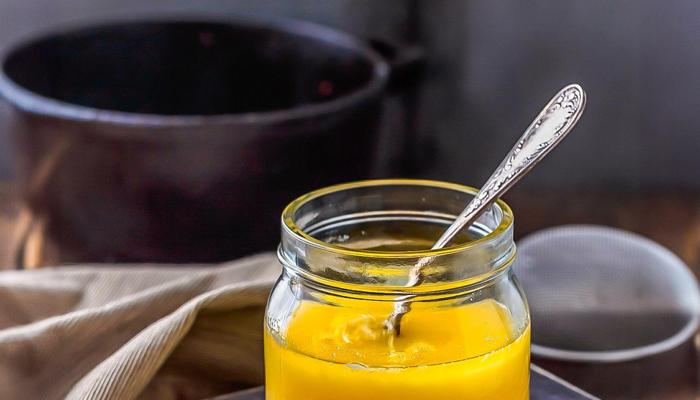Unveiling the Golden Elixir: Health Benefits of Ghee - Dive into why this Indian staple is a powerhouse of nutrients
For generations, ghee, or clarified butter, has held a special place in Indian kitchens
and culture. More than just a cooking medium, it's considered auspicious and is used in religious ceremonies, traditional medicine, and of course, daily meals.
But beyond its cultural significance, ghee is also packed with health benefits that make it a valuable addition to a balanced diet. Let's explore why this golden elixir is so revered and how it can contribute to your well-being.
Ghee: Concentrated butterfat rich in fat-soluble vitamins
Ghee is essentially butter that has been simmered to remove water and milk solids, leaving behind pure butterfat. This process not only gives ghee its characteristic nutty flavor and aroma but also concentrates its beneficial properties.

It's rich in fat-soluble vitamins like A, D, E, and K, which play crucial roles in various bodily functions. Vitamin A, for instance, is essential for good eyesight and immune function, while vitamin D helps in calcium absorption for strong bones.
Vitamin E is a powerful antioxidant that protects cells from damage, and vitamin K is vital for blood clotting and bone health.
These vitamins alone make ghee a powerhouse of nutrients, contributing significantly to overall health and well-being when consumed in moderation as part of a balanced diet. Plus, the process of removing milk solids makes it better tolerated than butter for those with lactose sensitivities.
Ghee promotes digestion and gut health in Ayurveda
One of the primary reasons ghee is celebrated in Ayurveda, the ancient Indian system of medicine, is its ability to promote digestion. Ghee helps stimulate the secretion of stomach acids, which are essential for breaking down food and absorbing nutrients effectively.
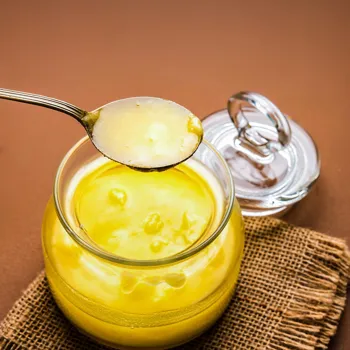
It contains butyric acid, a short-chain fatty acid that nourishes the cells of the intestinal lining, reducing inflammation and improving gut health. A healthy gut is crucial for overall well-being as it plays a key role in immunity, nutrient absorption, and even mental health.
Regular consumption of ghee, in moderation, can help strengthen the digestive system, reduce bloating, and improve overall gut health. This is why it is often recommended in Ayurvedic treatments for digestive disorders.
Ghee's anti-inflammatory properties aid in preventing chronic diseases
Ghee is also known for its anti-inflammatory properties, largely due to the presence of butyric acid. Inflammation is at the root of many chronic diseases, including heart disease, arthritis, and even some types of cancer.
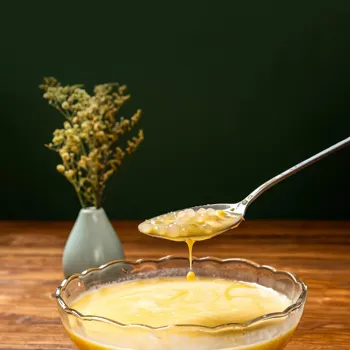
Butyric acid helps reduce inflammation in the body, protecting against these conditions. Additionally, ghee contains conjugated linoleic acid (CLA), another fatty acid with anti-inflammatory and antioxidant properties.
CLA has been shown to have potential benefits in reducing body fat and improving insulin sensitivity. Including ghee in your diet can thus be a proactive step in combating inflammation and promoting long-term health.
Ghee may benefit heart health when consumed in moderation
In addition to its digestive and anti-inflammatory benefits, ghee can also improve heart health. While it is a saturated fat, research suggests that ghee may not be as detrimental to heart health as previously thought. Some studies have indicated that ghee can actually help lower cholesterol levels.
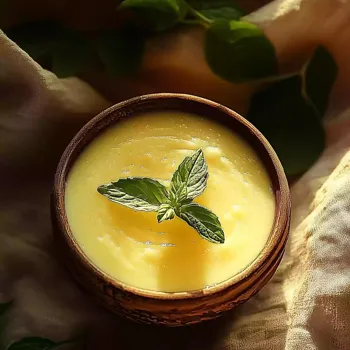
The key is moderation; consuming ghee in small to moderate amounts as part of a balanced diet is unlikely to negatively impact heart health and may even offer benefits. Furthermore, the fat-soluble vitamins in ghee also contribute to cardiovascular health.
It's important to note that individual responses to ghee can vary, and it's always best to consult with a healthcare professional for personalized dietary advice.
Ghee is a natural moisturizer for skin, consumed or applied
Ghee acts as a natural moisturizer both internally and externally. Consuming ghee helps keep the skin hydrated and supple from within, while applying it topically can nourish and protect the skin. It is often used in Ayurvedic skincare preparations for its moisturizing and rejuvenating properties.
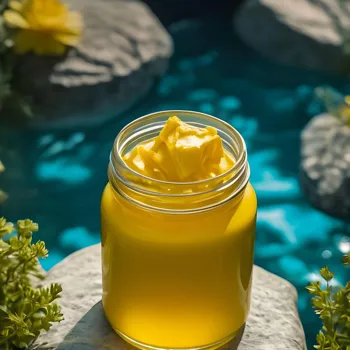
Ghee is also believed to promote wound healing and reduce scarring. During winters, when the skin tends to become dry and flaky, regular consumption of ghee can help maintain its moisture balance. Its rich fatty acid content makes it an excellent emollient, soothing dry and irritated skin.
This makes ghee a valuable addition to your beauty routine, both as a dietary supplement and as a skincare ingredient.
Ghee boosts immunity with essential vitamins A, D, E, K
Finally, ghee can also act as a natural immunity booster. The fat-soluble vitamins A, D, E, and K present in ghee are essential for maintaining a strong immune system. Vitamin A helps maintain the integrity of the mucous membranes, which act as a barrier against infections.
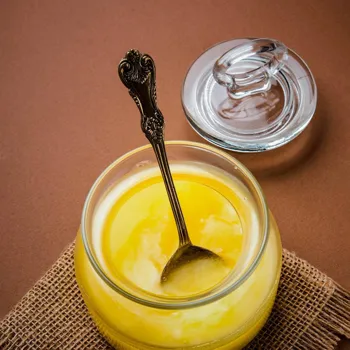
Vitamin D plays a crucial role in immune cell function, while vitamin E protects cells from damage caused by free radicals. Vitamin K is important for blood clotting, which is essential for wound healing and preventing infections.
Regular consumption of ghee, in moderation, can help strengthen your immune system, making you more resistant to infections and illnesses. It's a simple and delicious way to boost your body's natural defenses.
AI Generated Content. Glance/InMobi shall have no liability for the content